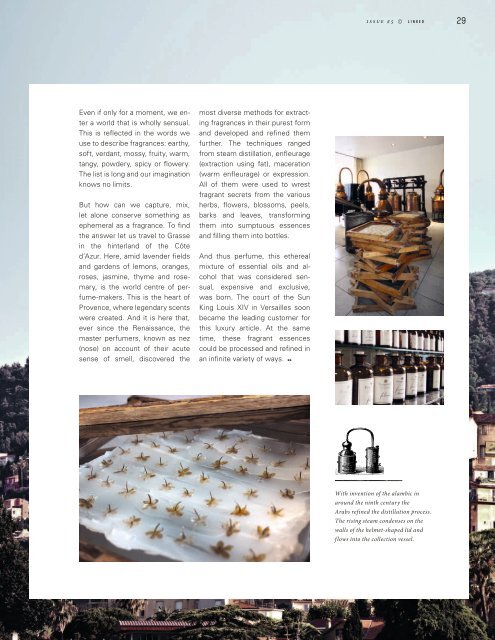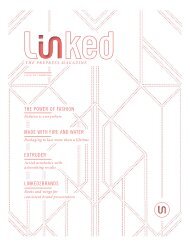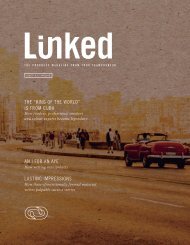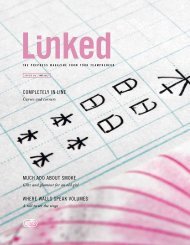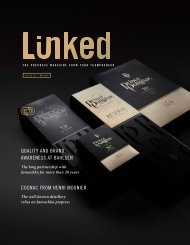Create successful ePaper yourself
Turn your PDF publications into a flip-book with our unique Google optimized e-Paper software.
issue #5 ©<br />
l i n k e d<br />
29<br />
Even if only for a moment, we enter<br />
a world that is wholly sensual.<br />
This is reflected in the words we<br />
use to describe fragrances: earthy,<br />
soft, verdant, mossy, fruity, warm,<br />
tangy, powdery, spicy or flowery.<br />
The list is long and our imagination<br />
knows no limits.<br />
But how can we capture, mix,<br />
let alone conserve something as<br />
ephemeral as a fragrance. To find<br />
the answer let us travel to Grasse<br />
in the hinterland of the Côte<br />
d’Azur. Here, amid lavender fields<br />
and gardens of lemons, oranges,<br />
roses, jasmine, thyme and rosemary,<br />
is the world centre of perfume-makers.<br />
This is the heart of<br />
Provence, where legendary scents<br />
were created. And it is here that,<br />
ever since the Renaissance, the<br />
master perfumers, known as nez<br />
(nose) on account of their acute<br />
sense of smell, discovered the<br />
most diverse methods for extracting<br />
fragrances in their purest form<br />
and developed and refined them<br />
further. The techniques ranged<br />
from steam distillation, enfleurage<br />
(extraction using fat), maceration<br />
(warm enfleurage) or expression.<br />
All of them were used to wrest<br />
fragrant secrets from the various<br />
herbs, flowers, blossoms, peels,<br />
barks and leaves, transforming<br />
them into sumptuous essences<br />
and filling them into bottles.<br />
And thus perfume, this ethereal<br />
mixture of essential oils and alcohol<br />
that was considered sensual,<br />
expensive and exclusive,<br />
was born. The court of the Sun<br />
King Louis XIV in Versailles soon<br />
became the leading customer for<br />
this luxury article. At the same<br />
time, these fragrant essences<br />
could be processed and refined in<br />
an infinite variety of ways.<br />
With invention of the alambic in<br />
around the ninth century the<br />
Arabs refined the distillation process.<br />
The rising steam condenses on the<br />
walls of the helmet-shaped lid and<br />
flows into the collection vessel.


